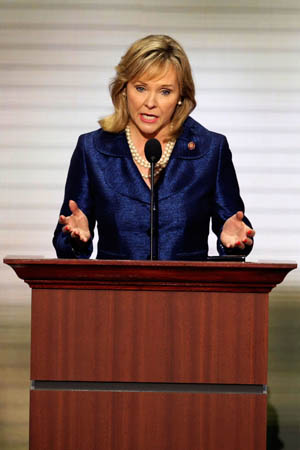How Lawmakers Plan to Pay for the Income Tax Cut
-
Joe Wertz
Republican lawmakers and Gov. Mary Fallin have agreed on a plan to cut Oklahoma’s individual income tax rate.
The agreement would cut the top personal rate to 4.8 percent from 5.25 percent next year, includes an additional tax cut tied to a revenue growth trigger in 2015, and simplifies the tax code by reducing the number of tax brackets to three from seven.
House and Senate Democrats decried the effort as premature, but legislators will likely approve the plan, House Speaker Kris Steele, R-Shawnee, and Senate President Pro Tem Brian Bingman, R-Sapulpa, told The Oklahoman.
Here’s how they plan to pay for it:
Lost revenue is partially offset by eliminating 33 tax credits, certain deductions and eliminating the personal exemption for single filers making more than $35,000 and joint filers making more than $70,000. No major economic tax credits are being eliminated; retirement and veteran tax exemptions for individual taxpayers are safe.
The plan leaves alone credits available to low-income taxpayers, such as earned income credits, child and child care credits and sales tax relief credits, reports the paper’s Michael McNutt.
The tax cut agreement will save taxpayers about $218 million in FY 2014. If the 5 percent growth trigger — which is tied to personal income and sales, corporate and motor vehicle tax collections — is reached in FY 2015, taxes would be cut by an additional $121.4 million, The Oklahoman reports.
The personal income tax is the largest single source of tax revenue for the state, and provides about one-third of funding appropriated by lawmakers.
Oklahoma’s income tax debate is fueled by competition with neighboring states. Texas doesn’t have a personal income tax, and Missouri’s might be eliminated. Kansas lawmakers recently approved a measure that lowers that state’s top personal income tax rate to 4.9 percent, which Fallin pressured state lawmakers to best.
Plans for deeper cuts — Fallin wanted the top rate down to 3.5 percent next year, and two bills reduced it two 2.25 percent — were derailed because legislators wouldn’t eliminate or reduce corporate tax credits.


